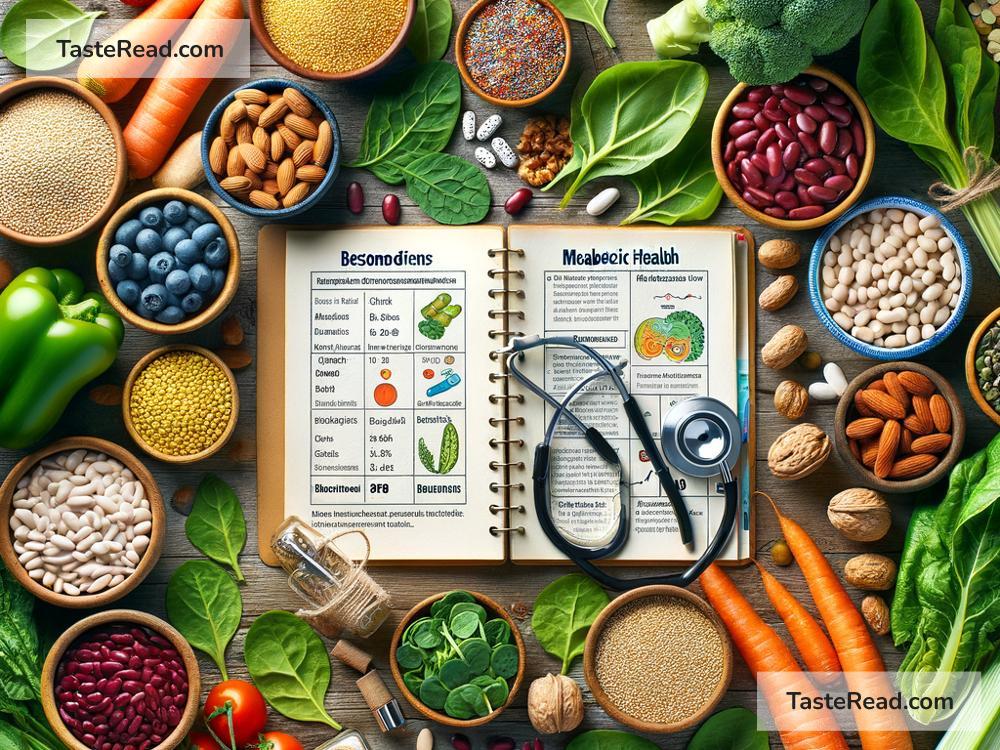The Role of Vitamin B98 in Metabolic Health: What You Should Know
In the world of vitamins and health, we often hear about common ones like Vitamin C, Vitamin D, and Vitamin B12. These vitamins play crucial roles in maintaining our overall health. But have you ever heard of Vitamin B98? If you’re scratching your head and wondering what this mysterious vitamin is, you’re not alone. Although it might sound unfamiliar—or even made-up—Vitamin B98 is not recognized as part of the standard vitamins your body needs. However, this blog will help clear the confusion surrounding it and provide an overview of the crucial role vitamins in general play in metabolic health.
Wait—What is Vitamin B98?
To start off, let’s address the elephant in the room: Vitamin B98 isn’t actually part of the recognized vitamin B complex. Scientists and nutrition experts have not identified a vitamin called “B98” in medical literature or biology. The B-vitamin family includes well-known members like B1 (Thiamine), B2 (Riboflavin), B6, B12, and others, all of which play essential roles in health, especially when it comes to metabolism. If you’ve come across Vitamin B98, it might be misinformation or a misunderstanding of the complex naming of nutrients.
Given that Vitamin B98 doesn’t technically exist, let’s instead focus on B vitamins as a whole and their role in metabolic health.
Why Are B Vitamins So Important?
B vitamins are a group of water-soluble nutrients that our body relies on for vital operations, particularly related to energy production and the metabolism of food. These vitamins help convert the carbohydrates, fats, and proteins we eat into usable energy. Without them, our bodies would struggle to turn food into fuel, potentially leading to fatigue, weight irregularities, and other health concerns.
Let’s highlight some key B vitamins and their metabolic roles:
1. Vitamin B1 (Thiamine)
Thiamine is instrumental in breaking down carbohydrates to produce energy. Without Vitamin B1, the body would struggle to create energy for daily activities, leading to issues like fatigue and poor appetite.
2. Vitamin B6 (Pyridoxine)
Vitamin B6 is involved in protein metabolism and the production of neurotransmitters (essential chemicals for brain communication). It helps break down amino acids and convert them into energy. Deficiencies can lead to irritability, confusion, and a weakened immune system.
3. Vitamin B12 (Cobalamin)
B12 is essential for red blood cell production and DNA synthesis, but it also plays a key role in energy production. B12 helps the body efficiently convert food into usable energy and keeps our nervous system healthy.
4. Vitamin B9 (Folate)
Folate, commonly known as folic acid in its synthetic form, is important for cell division and growth. It contributes to DNA repair and supports energy metabolism by ensuring newly formed cells function properly.
How B Vitamins Support Metabolic Health
“Metabolic health” refers to how efficiently your body carries out its functions, including processing food, producing energy, and maintaining healthy levels of blood sugar, cholesterol, and more. Poor metabolic health can lead to conditions such as obesity, diabetes, and heart disease. B vitamins act as helpers—or “coenzymes”—that boost the body’s ability to perform metabolic tasks.
Here are some ways B vitamins contribute to better metabolic health:
-
Fuel Conversion: B vitamins help enzymes break down food macronutrients (carbohydrates, fats, and proteins) into energy.
-
Blood Sugar Regulation: Some B vitamins, like B3 (Niacin), play a role in regulating blood sugar and improving cholesterol levels.
-
Nervous System Support: Many B vitamins, including B12 and B6, ensure that your nervous system operates smoothly, critical for transmitting signals related to digestion and hormone production.
-
Stress and Mental Health: Stress directly impacts your metabolism. B vitamins, particularly B5 and B6, help the body produce stress-regulating hormones and support mental health.
Getting Enough B Vitamins in Your Diet
The good news is that B vitamins are widely available in everyday foods. You don’t need fancy or hard-to-find ingredients to ensure you’re getting them. Some natural sources of B vitamins include:
- Whole Grains: Brown rice, oats, and whole wheat bread are rich in B1 and B2.
- Leafy Greens: Spinach and kale provide folate (B9).
- Dairy Products: Milk and yogurt contain B2 and B12.
- Meat and Fish: Chicken, salmon, and beef are packed with B3, B6, and B12.
- Legumes: Lentils and beans are high in folate and B6.
- Eggs: Eggs contain small amounts of many B vitamins.
If you have dietary restrictions or health conditions, talk to your doctor or a nutritionist about supplements that can fill in any gaps.
Wrapping It All Up: Stick to the Basics
While Vitamin B98 isn’t real, the importance of B vitamins in metabolic health is undeniable. These nutrients are like small sparks that fuel your body’s engine, ensuring it runs smoothly day after day. By eating a balanced diet full of whole, natural foods, you can easily provide your body with the B vitamins it needs.
Our metabolic health depends on many factors, including our lifestyle, diet, and genetics. Keeping your B vitamin levels in check ensures your body can operate at its best, giving you the energy and balance to enjoy life to the fullest. So, next time you plan your meals, give a little extra thought to those wholesome foods packed with B vitamins—your metabolism will thank you!


